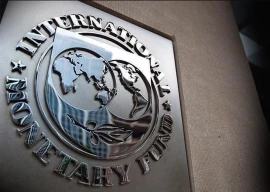
A provident fund is a retirement savings account that all companies with over a certain number of employees are legally required to maintain on behalf of their employees.
Employees contribute a certain amount of money from their salaries into the fund and employers generally pledge to match the employees’ contributions, up to a certain pre-specified limit which varies from company to company. For instance, my employer matches my contribution into the provident fund up to 3 per cent of my monthly salary.
Up to now, the provident fund probably sounds like a fantastic idea. An instant 100 per cent return on your cash is a pretty phenomenal thing. Unfortunately, that is pretty much where the niceties end.
Provident funds are not individualised, meaning that the average employee has absolutely no control over where the money is invested at all. Instead, the money is collected into a single pile and invested according to some very restrictive regulations put in place by the Securities and Exchange Commission of Pakistan.
For instance, no more than 30 per cent can be invested in stocks (and only in companies with a 5-year record of dividends, so no IPOs) and no more than 50 per cent in a mutual fund. In essence, the money can only be invested in the safest possible avenues, which unnecessarily penalises younger employees who can afford to take more risks.
Oh, and did I mention that the company is not required to pass on any of the returns on the investments to the employees? So it does not sound like too good a thing for somebody in the earlier part of their career, does it? Well, it turns out that it may still be worth your while.
That 100 per cent return is, of course, not exactly 100 per cent. While your money doubles at the moment you contribute to the provident fund, it more or less stays at exactly that amount until you leave the company. So in order to calculate your rate of return on it, you need to geometrically divide 100 per cent by the number of years you stay at the company (or plan to).
Geometric division is not the same at arithmetic division. For instance, if a person stays at a company for five years, their rate of return on the provident fund would be closer to 16 percent than 20 per cent (the result you would get if you arithmetically divide 100 by five).
Nevertheless, given the fact that many young people plan on staying at their employers for far less than five years (if they can help it), it means that the provident fund is probably worth their while. It is a safe investment (barring, of course, your employer going bankrupt or being difficult about actually handing over the money) and it is an automatic deduction from the salary, requiring less self-discipline.
With that said, however, we must campaign against the government’s arcane rules about provident funds. They are a perfectly good vehicle for investment that are currently being wasted due to outdated rules. It is time that employees, companies and particularly asset management institutions began pushing for reform.
We need individualised options for our retirement savings without having to sacrifice on the employer contribution. Right now, anybody who wants individualised retirement accounts must invest themselves in stocks, bonds, mutual funds or real estate for themselves. If the government is serious about having a large retail market for investments it would do well to start by allowing Corporate Pakistan’s employees to individualise their provident funds.
Published in The Express Tribune, August 9th, 2010.














1725352489-0/Untitled-design-(35)1725352489-0-270x192.webp)








COMMENTS (2)
Comments are moderated and generally will be posted if they are on-topic and not abusive.
For more information, please see our Comments FAQ